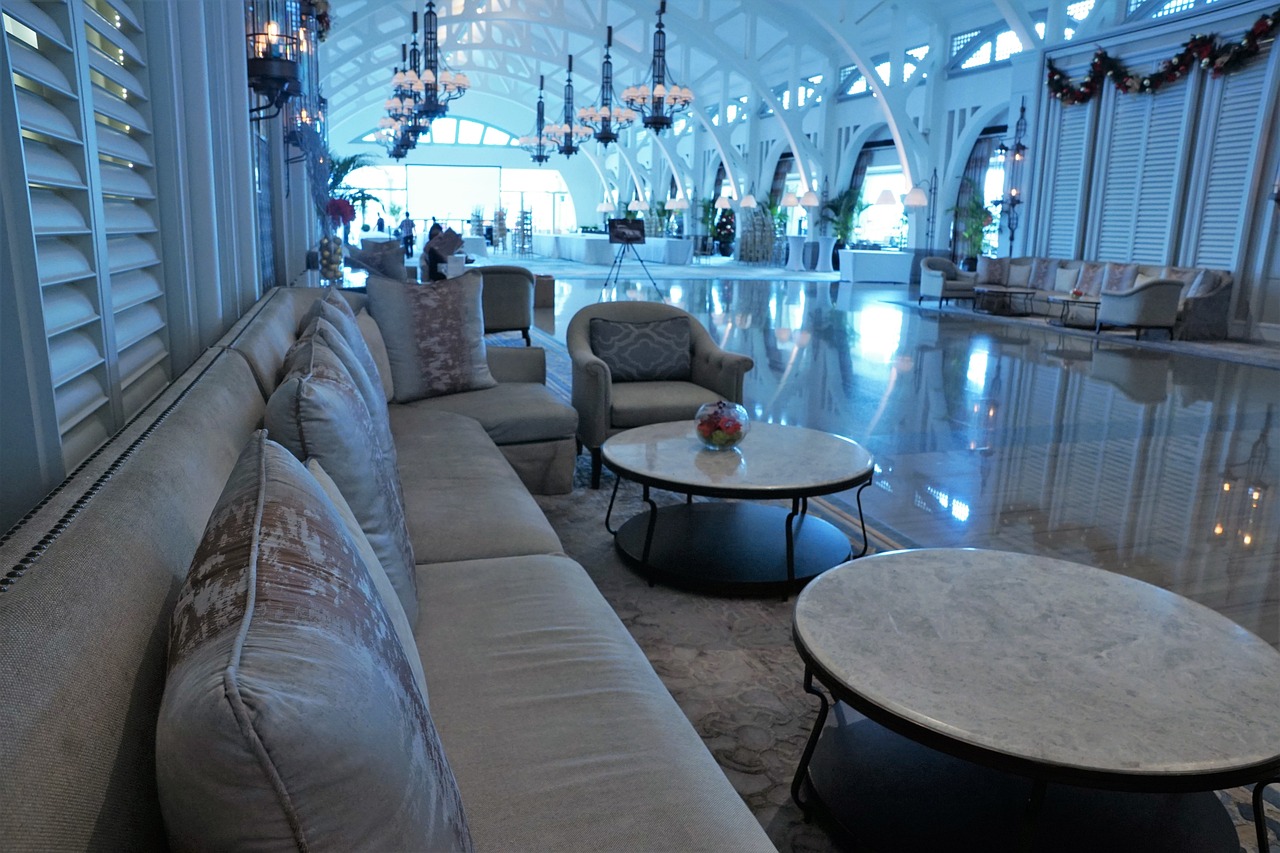Singapore Video
Cultural Etiquette: Doing Business in Singapore
Singapore is a vibrant and cosmopolitan city-state known for its strong economy and business-friendly environment. When doing business in Singapore, it is essential to understand and respect the local cultural etiquette. This article provides a comprehensive guide to help navigate the cultural nuances and enhance business relationships in Singapore.
Section 1: Greetings and Introductions
In Singapore, greetings play a significant role in establishing rapport and building connections. When meeting someone for the first time, a firm handshake is appropriate, accompanied by a slight nod of the head. It is common for Singaporeans to address each other using their titles and surnames, followed by their given names. For example, Mr. Tan Ah Meng would be addressed as “Mr. Tan” or “Mr. Meng.”
- Exchanging Business Cards: Exchanging business cards is a common practice in Singapore. It is important to present and receive business cards with both hands as a sign of respect. Take a moment to study the card before putting it away, as this demonstrates interest and respect.
- Formal Titles: When addressing individuals, it is customary to use their formal titles, such as “Mr.,” “Mrs.,” or “Dr.” followed by their last name. Avoid using first names unless invited to do so.
- Punctuality: Being punctual is highly valued in Singapore. Arriving on time for meetings and appointments is essential to show respect for others’ time and professionalism.
- Body Language: Maintain good eye contact during conversations, as it is a sign of attentiveness and sincerity. Avoid excessive physical contact or gestures, as Singaporeans generally prefer a more reserved demeanor.
Section 2: Business Attire
Singaporeans place importance on dressing appropriately for business occasions. While the dress code may vary depending on the industry, it is generally advisable to dress conservatively and professionally.
- Formal Business Attire: In formal settings, men should wear tailored suits in dark colors with a tie. Women should opt for conservative business suits or dresses. It is essential to maintain a neat and polished appearance.
- Casual Business Attire: In more casual settings, such as certain technology or creative industries, business casual attire is acceptable. However, it is still important to maintain a professional appearance.
- Adapting to Local Customs: When attending business meetings or events with local counterparts, it is advisable to observe and align with their dress code to show respect for their cultural norms.
Section 3: Business Meetings and Communication
In Singapore, business meetings are conducted in a formal and structured manner. It is important to be well-prepared and adhere to certain protocols to ensure successful interactions.
Singapore Image 1:

- Appointment Setting: It is recommended to schedule business meetings well in advance, allowing ample time for preparations. Singaporeans appreciate punctuality, so it is essential to arrive on time.
- Agenda and Documentation: Prepare a detailed agenda for the meeting and share it in advance. Singaporeans value thoroughness and appreciate having all relevant documents and information readily available.
- Hierarchy and Seniority: Singaporean business culture respects hierarchy and seniority. It is important to address senior members first and acknowledge their authority during discussions.
- Direct Communication: Singaporeans tend to be direct and value clear communication. It is important to express thoughts and ideas concisely while maintaining respect and professionalism.
Section 4: Building Relationships and Trust
Building strong relationships and trust is crucial in Singapore’s business environment. Singaporeans value long-term partnerships and prefer conducting business with individuals they know and trust.
- Networking Events: Attending networking events and industry gatherings can be a valuable way to establish connections and build relationships. Be proactive in initiating conversations and showing genuine interest in others.
- Face-to-Face Interactions: Singaporeans prefer face-to-face meetings to establish trust and rapport. Regular visits to Singapore are highly recommended to nurture business relationships.
- Building Rapport: Take the time to engage in small talk and get to know your business counterparts on a personal level. Demonstrating interest in their culture, hobbies, and family can help strengthen relationships.
- Building Trust: Honesty, integrity, and delivering on promises are essential for building trust in Singapore. Maintaining open and transparent communication is key to fostering strong business relationships.
Section 5: Gift Giving
Giving and receiving gifts is a common practice in Singapore. However, it is important to understand the cultural norms and sensitivities surrounding gift giving.
- Appropriate Gifts: When giving gifts, choose items that are not overly expensive or lavish, as this may make the recipient uncomfortable. Practical and thoughtful gifts are more appreciated.
- Business Etiquette: It is generally advisable to present gifts at the end of a business meeting or event. Gifts should be wrapped neatly and presented with both hands as a sign of respect.
- Corporate Policies: Some companies in Singapore have strict policies regarding gift acceptance. It is important to check with the recipient’s organization before presenting a gift.
- Symbolic Meaning: Avoid giving gifts with negative connotations or symbols associated with death or superstitions. Gifts related to the recipient’s interests or hobbies are more appropriate.
Section 6: Dining and Business Entertaining
In Singapore, business meetings often take place over meals. Understanding dining etiquette is essential to making a positive impression.
Singapore Image 2:

- Hosting Responsibilities: If you are the host, take the initiative to make restaurant reservations and arrange transportation for your guests. This gesture is considered hospitable and shows respect.
- Seating Arrangements: The host typically takes the lead in seating arrangements. The guest of honor is usually seated at the center of the table, with other guests seated according to their rank or importance.
- Table Manners: Singaporeans value good table manners. Chew with your mouth closed, avoid talking with food in your mouth, and use utensils appropriately. It is polite to try a little of every dish served.
- Offering Toasts: Toasts are common during business meals. If you are the host, it is customary to initiate a toast. When toasting, raise your glass with both hands as a sign of respect.
Section 7: Negotiation and Decision Making
Negotiations in Singapore are typically conducted in a collaborative and consensus-driven manner. Building trust and understanding cultural nuances can contribute to successful outcomes.
- Patience and Indirectness: Singaporeans often employ an indirect communication style during negotiations. They may use subtle cues or non-verbal signals to express agreement or disagreement. Patience is key to interpreting these cues.
- Hierarchy and Decision Making: Decisions are often made by senior management or higher-ranking individuals. It is important to be aware of the decision-making structure within the organization and address the appropriate individuals.
- Win-Win Solutions: Singaporeans value win-win outcomes and prefer negotiations that benefit both parties. It is important to emphasize mutual benefits and long-term partnerships rather than focusing solely on individual gains.
- Written Agreements: Once an agreement is reached, it is customary to document it in a written contract. Legal advice may be sought to ensure the agreement is comprehensive and legally binding.
Section 8: Business Gifts and Hospitality
Offering business gifts and hospitality is a common practice in Singapore. It is important to understand the cultural norms and guidelines surrounding these gestures.
- Gifts for Business Partners: When presenting gifts to business partners, choose items that reflect your appreciation and respect. It is advisable to give gifts that can be shared among the team rather than individual gifts.
- Entertaining Clients: Hosting clients for meals or social events is a way to strengthen business relationships. Selecting reputable restaurants and ensuring a pleasant experience for your guests is important.
- Accepting Invitations: If you receive an invitation for a business meal or event, it is considered polite to accept. This gesture shows your willingness to engage and build relationships.
- Reciprocating Hospitality: It is customary to reciprocate hospitality by inviting your business partners or clients for a meal or event. This helps maintain balance in the relationship and strengthens bonds.
Section 9: Business Etiquette in Meetings
Understanding the etiquette for conducting business meetings in Singapore is crucial for effective communication and successful outcomes.
Singapore Image 3:

- Respect for Hierarchy: Singaporean business culture places importance on hierarchy and seniority. It is essential to address senior members first and defer to their opinions during discussions.
- Active Listening: Paying close attention and actively listening to others’ ideas and opinions is valued in Singapore. Avoid interrupting or speaking over others, as it may be seen as disrespectful.
- Consensus Building: Singaporeans prefer consensus-driven decision making. Take the time to understand different perspectives and work towards finding common ground that benefits all parties involved.
- Follow-Up Actions: After a meeting, it is important to summarize key points and action items in writing. Sending a follow-up email or formal letter helps ensure clarity and accountability.
Section 10: Business Communication
Effective communication is essential for successful business interactions in Singapore. Understanding the cultural nuances can help avoid misunderstandings and foster strong relationships.
- Politeness and Respect: Singaporeans value politeness and respect in business communication. Use appropriate salutations, maintain a professional tone, and avoid confrontational language.
- Written Communication: Written correspondence should be concise, clear, and well-structured. Pay attention to grammar and spelling, as errors may be seen as a lack of attention to detail.
- Indirect Communication: Singaporeans often employ an indirect communication style, particularly when conveying criticism or disagreement. It is important to read between the lines and consider the context.
- Non-Verbal Communication: Non-verbal cues, such as facial expressions and body language, play a significant role in communication. Be aware of your own non-verbal signals and observe those of others.
Section 11: Business Etiquette in Social Settings
Socializing outside of business settings is common in Singapore and can help strengthen professional relationships. Understanding the cultural etiquette in social settings is essential.
- Accepting Invitations: When invited to social events, it is considered polite to accept unless there are prior commitments. Attending these events provides opportunities to network and build relationships.
- Punctuality: Arriving on time for social events is important to show respect for the host and other guests. However, it is acceptable to be fashionably late by about 10-15 minutes for more formal occasions.
- Table Manners: Good table manners are essential when dining in social settings. Familiarize yourself with local customs, such as using chopsticks or the correct way to eat certain dishes.
- Social Etiquette: Being polite, engaging in small talk, and showing interest in others are important in social settings. Avoid controversial topics or sensitive issues, as they may be deemed inappropriate.
Section 12: Conclusion
Doing business in Singapore requires an understanding and appreciation of the local cultural etiquette. By respecting traditions, building relationships, and adapting to local customs, you can enhance your business interactions and pave the way for successful collaborations in this dynamic city-state.
References
– Singapore Tourism Board: visitsingapore.com
– Enterprise Singapore: enterprisesg.gov.sg
– Ministry of Foreign Affairs, Singapore: mfa.gov.sg
– International Business Singapore: internationalsingapore.com
– Singapore Business Review: sbr.com.sg


